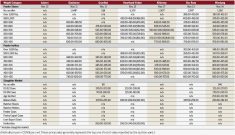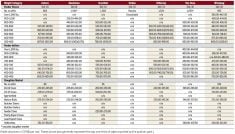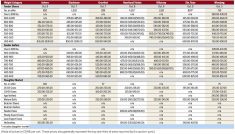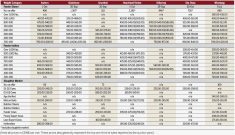Canada expects to increase its beef exports to Europe, now that the U. S. will be able to do so.
The U. S. and the EU have reached a four-year agreement in principle to increase American shipments of hormone-free beef to Europe. In exchange, the U. S. will gradually eliminate certain tariffs on EU products.
Canada hopes for a similar deal soon, a beef industry spokesperson said.
“There certainly is a lot of intense work going on to try to achieve a result for Canada as well,” said John Masswohl, international relations director for the Canadian Cattlemen’s Association.
Read Also

Canada’s import ban on Avix bird control system ruffles feathers
Canadian producers’ access to Bird Control Group’s Avix laser system remains blocked despite efficacy studies and certifications, as avian flu deaths rise.
A deal announced May 6 and ratified in a memorandum of understanding May 13 allows the U. S. to export an additional 20,000 tonnes of duty-free beef to Europe for three years. The amount will increase to 45,000 tonnes in the fourth year.
In return, the U. S. will phase out retaliatory tariffs on EU imports allowed by the World Trade Organization. The U. S. imposed the duties after the EU refused to comply with a WTO ruling against its ban on beef treated with growth hormones.
The agreement is the first real let-up in a two-decades-long dispute. “It’s not a resolution, but it’s a path forward,” Masswohl said.
The EU banned North American beef in 1988 over the use of growth-promoting hormones. Canada and the U. S. successfully challenged the ban before the WTO, which ruled in their favour in 1998. The EU refused to comply, so the WTO in 1999 authorized the U. S. and Canada to impose retaliatory duties on certain EU products. Those duties remain in place.
On Jan. 15, the U. S. announced additional duties to go into effect May 9. Those duties are delayed because of the May 6 agreement.
Both sides have agreed not to file additional litigation on the matter at the WTO for at least 18 months. They will also try to reach a longer-term agreement.
Canada and the U. S. currently share an 11,500-tonne beef quota to the EU at a 20 per cent tariff. Masswohl said Canada actually ships very little beef, which must still be hormone free, under the quota.
If the U. S.-EU arrangement leads to a “commercially meaningful-size quota at a zero per cent duty,” beef farmers will produce to meet that demand, he said. [email protected]














